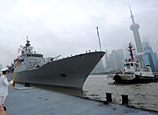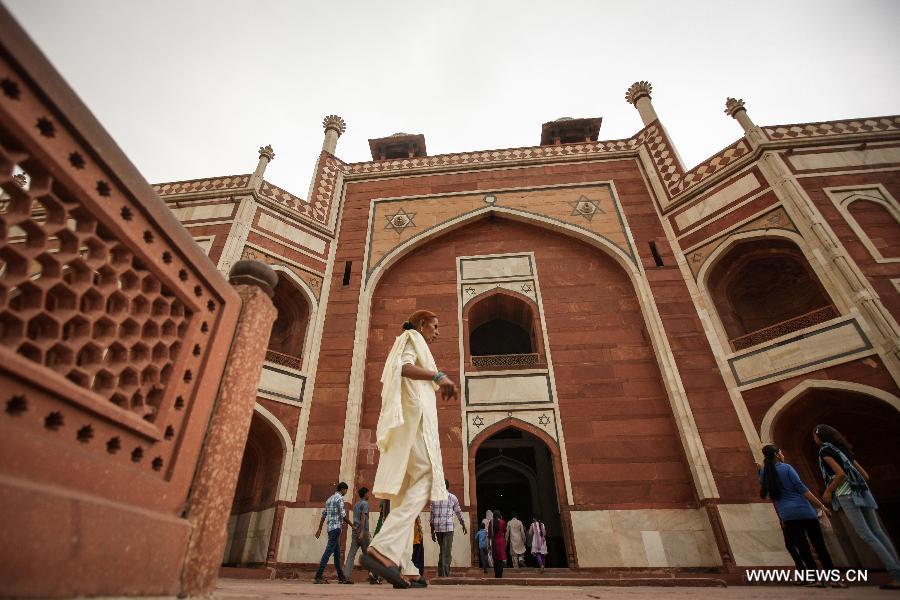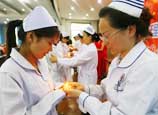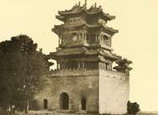
Successful summits tend to be more about symbolism than substance. South Korean President Park Geun-hye's summit with US President Barack Obama certainly had its share of symbolism: the first foreign trip of South Korea's new first woman President, 60th anniversary of the US-South Korean alliance, and joint messages to North Korea, to Japan and China.
But Park's US trip rose above mere symbolism on a number of important fronts. It marked a deepening institutionalization of the alliance beyond defense into a larger partnership encompassing economics and global cooperation.
Park is pursuing a different approach to Pyongyang than her predecessor, Lee Myung-bak, though they are from the same conservative political party.
During Lee's tenure, North-South relations hit new lows, as confrontations such as the sinking of the Cheonan and the shelling of Yeonpyeong Island in 2010 inflamed tensions and angered the South Korean public.
Lee's hard-line policy and demand for reciprocity from the North was a shift from the previous "Sunshine policy" begun by former president Kim Dae-jung, which offered aid and cooperation to North Korea despite a lack of reciprocity.
Instead, Park wants to pursue a "trust-building" process with North Korea, maintaining deterrence but keeping a window for dialogue and cooperation and humanitarian assistance. By doing so, she hopes to induce North Korea to comply with its previous denuclearization obligations.
This approach was explicitly supported by Obama. Park referred to a Korean saying that "it takes two hands to clap." Obama stressed that there was no distance between the two allies' policies and that, "The days when North Korea could create a crisis and elicit concessions are over."
Park raised the troubling issue of Japanese revisionism on her US visit. Park told the Washington Post that she was "disappointed and frustrated at the lack of progress in relations with Japan."
She complained that "the Japanese have been opening past wounds and have been letting them fester, and this applies not only to Korea but also to other neighboring countries."
In regard to China's support for North Korea, Park noted some changes in Beijing's policy when Xi Jinping took office. She said in an interview that China could exert more influence to change North Korean behavior, but that if North Korea, "chooses not to take the right path," she would ask China to rethink whether its current policy toward North Korea "is sustainable."
One little noticed initiative from the visit was Park's call to create a new multilateral dialogue process in Northeast Asia to address the deficit of political security cooperation.
Park suggested it could start focusing on environmental issues, nuclear safety, counterterrorism and disaster relief, and then build a wider agenda.
She appeared to be thinking of the five parties in the now lapsed Six-Party Talks, but added that North Korea might be invited.
While the US and South Korea reaffirmed commitments to implement the US-ROK Free Trade Agreement, it was unclear whether the issue of Seoul joining the Trans-Pacific Partnership was discussed.
At a time of tension and uncertainty in Asia, Park's trip to the US was clearly about more than symbolism.
Whether the visit will yield more than modest progress in addressing the region's problems is unclear.
However, it clearly energized US-South Korean relations; it has put some interesting new ideas on the table, and not least, it showcased Park as an assertive new Asian leader determined to meet the challenges facing Northeast Asia.
The author is a senior fellow of the Brent Scowcroft Center for International Security at the Atlantic Council. He served as a senior counselor to the Under Secretary of State for Global Affairs from 2001 to 2004 and a member of the US Department of State Policy Planning Staff from 2004 to 2008. opinion@globaltimes.com.cn


















![]()
